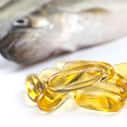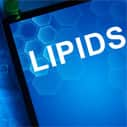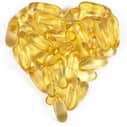
What's Hot
What's Hot
News flashes are posted here frequently to keep you up-to-date with the latest advances in health and longevity. We have an unparalleled track record of breaking stories about life extension advances.
Rhodiola promising as antidepressant alternative
 March 30 2015. The March 15, 2015 issue of the journal Phytomedicine published the outcome of a trial which found a benefit for Rhodiola rosea in major depressive disorder (MDD). The study is the first randomized, double-blinded, placebo-controlled comparison of rhodiola and a pharmaceutical antidepressant for mild to moderate MDD.
March 30 2015. The March 15, 2015 issue of the journal Phytomedicine published the outcome of a trial which found a benefit for Rhodiola rosea in major depressive disorder (MDD). The study is the first randomized, double-blinded, placebo-controlled comparison of rhodiola and a pharmaceutical antidepressant for mild to moderate MDD.
Acting on the hypothesis that rhodiola would have similar benefits as the antidepressant sertraline with fewer side effects, Jun J. Mao, MD, MSCE and colleagues divided 57 depressed subjects into groups that received standardized R. rosea extract, sertraline or a placebo for 12 weeks. Depressive symptoms, such as insomnia, weight loss or gain, and inability to concentrate were rated before and after treatment.
In comparison with the placebo group, participants who received sertraline had 1.9 times the chance of experiencing improvement in their symptoms by the end of the study, while those who received rhodiola had 1.4 times the odds. However, rhodiola was associated with less than half the risk of adverse effects, including nausea and sexual dysfunction, than those associated with sertraline. "These findings suggest that R. rosea, although less effective than sertraline, may possess a more favorable risk to benefit ratio for individuals with mild to moderate depression," the authors concluded.
"These results are a bit preliminary but suggest that herbal therapy may have the potential to help patients with depression who cannot tolerate conventional antidepressants due to side effects," commented Dr Mao, who is an associate professor of Family Medicine, Community Health and Epidemiology at the Perelman School of Medicine of University of Pennsylvania. "Larger studies will be needed to fully evaluate the benefit and harm of R. rosea as compared to conventional antidepressants."
—D Dye
Majority of pregnant women consume insufficient amount of omega-3
 March 27 2015. A study described in Applied Physiology, Nutrition, and Metabolism on March 25, 2015 suggests a lack of sufficient intake of omega-3 fatty acids among most pregnant and lactating women. However, the researchers involved in the study stress that women who supplemented with the fatty acids met the European Union (EU) recommended intake.
March 27 2015. A study described in Applied Physiology, Nutrition, and Metabolism on March 25, 2015 suggests a lack of sufficient intake of omega-3 fatty acids among most pregnant and lactating women. However, the researchers involved in the study stress that women who supplemented with the fatty acids met the European Union (EU) recommended intake.
A team from the University of Alberta analyzed dietary questionnaire responses that were completed at each pregnancy trimester and three months following delivery by 600 participants in the Alberta Pregnancy Outcomes and Nutrition cohort. They found that just 27% of pregnant women and 25% of those who were postpartum met the EU daily recommendation of 200 milligrams docosahexaenoic acid (DHA), which is needed for fetal development. (The American and Canadian recommendation is higher.)
When the researchers analyzed women who reported using DHA supplements, a different picture emerged. DHA supplement users were more than ten times as likely to meet the EU recommendation for DHA during pregnancy and over 11 times as likely to meet the recommendation for postpartum intake in comparison with those whose intake was derived from food alone. "Our results suggest that the majority of women in the cohort were not meeting the EU recommendation for DHA during pregnancy and lactation, but taking a supplement significantly improved the likelihood that they would meet recommendations," authors Xiaoming Jia and colleagues observe.
"The current study demonstrated that taking a supplement of DHA can significantly improve a woman's chance of meeting recommendations," they conclude. "However, 44% percent of the women in the cohort who reported taking a supplement during pregnancy were no longer taking these supplements when breastfeeding at three months postpartum, supporting that education on the benefits of supplements should continue after pregnancy."
—D Dye
Quercetin among new class of treatments for aging identified
 March 25 2015. A new class of drugs labeled senolytics that may combat some of the factors associated with aging has been identified by researchers at the Scripps Research Institute. Senescent cells are those which have stopped dividing, and their accumulation has been associated with accelerated aging.
March 25 2015. A new class of drugs labeled senolytics that may combat some of the factors associated with aging has been identified by researchers at the Scripps Research Institute. Senescent cells are those which have stopped dividing, and their accumulation has been associated with accelerated aging.
In an article published in the August 2015 issue of Aging Cell, Paul Robbins, PhD, and colleagues document their discovery of increased expression of pro-survival networks in senescent cells. Compounds that target these networks, dubbed senolytics, include the drug dasatinib and the nutrient quercetin, which is found in fruits and vegetables, and is also available as a nutritional supplement. While dasatinib was found to reduce senescent human fat cell progenitors, quercetin showed a greater effect against senescent human endothelial cells and mouse bone marrow mesenchymal stem cells. The combination of both compounds was shown to eliminate senescent mouse embryonic fibroblasts.
"We view this study as a big, first step toward developing treatments that can be given safely to patients to extend healthspan or to treat age-related diseases and disorders," stated Dr Robbins. "When senolytic agents, like the combination we identified, are used clinically, the results could be transformative."
"In animal models, the compounds improved cardiovascular function and exercise endurance, reduced osteoporosis and frailty, and extended healthspan," reported research team member Laura J. Niedernhofer. "Remarkably, in some cases, these drugs did so with only a single course of treatment."
"Senescence is involved in a number of diseases and pathologies so there could be any number of applications for these and similar compounds," Dr Robbins added. "Also, we anticipate that treatment with senolytic drugs to clear damaged cells would be infrequent, reducing the chance of side effects."
—D Dye
Think D for depression
 March 23 2015. An article published online on March 6, 2015 in Psychiatry Research reports an association between depression in young women and reduced vitamin D levels.
March 23 2015. An article published online on March 6, 2015 in Psychiatry Research reports an association between depression in young women and reduced vitamin D levels.
The current study included 185 female undergraduates residing in the Pacific Northwest during fall, winter and spring academic terms. Participants rated their depressive symptoms weekly for four weeks. Blood samples collected at the beginning and end of the study were analyzed for vitamins C and D3.
Insufficient vitamin D levels of less than 30 nanograms per milliliter (ng/mL) were detected in 42% of the women at the beginning of the study and among 46% at its conclusion. The incidence of insufficiency was 61% in non-white women, in comparison with 35% among the rest of the group.
Clinically significant depressive symptoms were reported by 34%-42% of the participants over the course of the study. Having a low initial level of vitamin D3 was a predictor of depression across all weeks of the investigation. According to authors David Kerr of Oregon State University and his associates, there was evidence that the observed reduction in depressive symptoms that occurred in the fall could be explained by increased levels of vitamin D.
"It may surprise people that so many apparently healthy young women are experiencing these health risks," Dr Kerr remarked. "Vitamin D supplements are inexpensive and readily available. They certainly shouldn't be considered as alternatives to the treatments known to be effective for depression, but they are good for overall health."
"Depression has multiple, powerful causes and if vitamin D is part of the picture, it is just a small part," he noted. "But given how many people are affected by depression, any little inroad we can find could have an important impact on public health."
—D Dye
Study shows how omega-3 inhibits cancer cell growth
 March 20 2015. An article appearing in the Journal of Pharmacology and Experimental Therapeutics reports the discovery of Washington State University researchers of a mechanism for omega-3 fatty acids in reducing prostate cancer cell growth and metastasis.
March 20 2015. An article appearing in the Journal of Pharmacology and Experimental Therapeutics reports the discovery of Washington State University researchers of a mechanism for omega-3 fatty acids in reducing prostate cancer cell growth and metastasis.
It is known that G protein-coupled receptors of the free fatty acid receptor family bind omega-3 fatty acids. The current study determined that activation of the receptor designated free fatty acid receptor 4 (FFA4) by the omega 3 fatty acid eicosapentaenoic acid (EPA) initiated signaling events that inhibit cancer cell proliferation in response to signaling induced by growth factors in human prostate cancer cell lines.
Although the mechanisms of omega 3 fatty acids in diabetes and inflammation have been the subject of research, "We're the first to show that they work this way in cancer," announced lead researcher Kathryn Meier, who is a professor of pharmacy at Washington State University Spokane. "The attention has mostly been on inflammation and diabetes but there has always been an interest in cancer, and we were the first to show this mechanism in any cancer cell at all."
"This kind of knowledge could lead us to better treat or prevent cancer because now we know how it works," she noted.
—D Dye
Meta-analysis finds efficacy for zinc lozenges against common cold symptoms
 March 18 2015. The results of a meta-analysis published on February 25, 2015 in BMC Family Practice confirm an association between reduction in the duration of cold symptoms and the use of high dose zinc acetate lozenges.
March 18 2015. The results of a meta-analysis published on February 25, 2015 in BMC Family Practice confirm an association between reduction in the duration of cold symptoms and the use of high dose zinc acetate lozenges.
Harri Hemilä of the University of Helsinki and Elizabeth Chalker of the University of Sydney selected three randomized, double-blinded trials that evaluated the effectiveness of zinc acetate lozenges in common cold infections in which the total dose of zinc provided per day was 75 milligrams or more. The combined trials included 102 participants who received zinc and 97 who received a placebo.
Among those who received zinc, nasal discharge duration was shortened by 34%, congestion by 37%, sneezing by 22%, throat scratchiness by 33%, sore throat by 18%, hoarseness by 43%, cough by 46% and muscle ache by 54% in comparison with subjects who received a placebo. The authors suggest that a local effect of zinc ions released in the throat, as opposed to swallowed zinc or zinc nasal sprays, combined with a higher dose and superior form of the mineral, could be responsible for the effects observed in these studies in contrast with others that concluded less in the way of benefits. While the doses of zinc administered in trials included in the current analysis were significantly higher than the recommended dietary intake, Drs Hemilä and Chalker suggest that the use of 80 milligrams per day zinc in the form zinc acetate lozenges for up to two weeks is unlikely to cause serious adverse effects.
—D Dye
Elevated lipids may increase need for vitamin E
 March 13 2015. An article published on March 4, 2015 in the American Journal of Clinical Nutrition reports the discovery of Maret Traber and colleagues at the Linus Pauling Institute of an inhibitory effect for high cholesterol and triglycerides on vitamin E absorption.
March 13 2015. An article published on March 4, 2015 in the American Journal of Clinical Nutrition reports the discovery of Maret Traber and colleagues at the Linus Pauling Institute of an inhibitory effect for high cholesterol and triglycerides on vitamin E absorption.
The study included 41 men and women who received a breakfast that included collard greens containing deuterium-labeled alpha-tocopherol plus 4.7 mg unlabeled alpha-tocopherol. Blood samples drawn while fasting and at numerous intervals up to 72 hours after the meal was consumed were analyzed for labeled and unlabeled plasma alpha-tocopherol levels.
Unlabeled alpha-tocopherol levels were higher in older adults and were associated with increased serum lipids. Labeled alpha-tocopherol half lives were also correlated with serum total lipids, indicating that alpha-tocopherol remained in circulation longer at higher lipid concentrations, most likely because higher lipid levels are associated with slower lipoprotein catabolism and uptake by tissues.
"This research raises particular concern about people who are obese or have metabolic syndrome," commented Dr Traber, of the College of Public Health and Human Sciences at Oregon State University. "People with elevated lipids in their blood plasma are facing increased inflammation as a result. Almost every tissue in their body is under oxidative attack, and needs more vitamin E. But the vitamin E needed to protect these tissues is stuck on the freeway, in the circulatory system. It's going round and round instead of getting to the tissues where it's needed."
"In simple terms, we believe that less than one third the amount of vitamin E is actually making it to the tissues where it's most needed," she explained.
Dr Traber and her associates remark that "These findings have important public health consequences because they highlight a limitation in assessing vitamin E status by using only plasma alpha-tocopherol concentrations."
—D Dye
Omega-3 helps heart attack survivors
 March 11 2015. The American College of Cardiology's 64th Annual Scientific Session in April will be the site of the presentation of the finding of a benefit for omega-3 fatty acids in patients recovering from heart attack.
March 11 2015. The American College of Cardiology's 64th Annual Scientific Session in April will be the site of the presentation of the finding of a benefit for omega-3 fatty acids in patients recovering from heart attack.
Raymond W. Kwong, MD, MPH, and his associates randomized 374 heart attack survivors who were given standard therapy to receive 4,000 grams omega-3 fatty acids or a placebo daily for six months. Blood samples were analyzed for omega-3 fatty acid levels and other factors, and cardiac magnetic resonance imaging (MRI) was conducted at two to four weeks and at the trial's conclusion.
By the end of the trial, blood levels of omega-3 fatty acids had increased among 92% of those who received them and ST2, a marker of the severity of adverse cardiac remodeling and tissue fibrosis, was reduced. Cardiac imaging results indicated that the omega-3 group experienced less deterioration in heart function in comparison with those who received a placebo.
"Omega-3 fatty acids may have anti-inflammatory effects and also promote better cardiac healing," commented Dr Kwong, who is the director of cardiac magnetic resonance imaging at Brigham and Women's Hospital. "This is important because other anti-inflammatory agents, including steroids and NSAIDS, have failed to make a difference after myocardial infarction."
"If this becomes a useful therapy, it seems a 5 percent increase in the serum level of omega-3 fatty acids correlates with a 10 percent improvement in left ventricular remodeling," he predicted.
"Giving a high dose of omega-3 fatty acids soon after a heart attack appears to improve cardiac structure and heart functioning above and beyond the standard of care," Dr Kwong concluded. "Because this is a unique group of patients with remarkably high adherence to [guideline-directed] treatments for acute myocardial infarction already, we feel fairly confident that the benefits from this therapy are additive. The implications of this study could be fairly large."
—D Dye
More studies affirm testosterone safety
 March 9 2015. The American College of Cardiology's 64th Annual Scientific Session was the site of two presentations concerning a lack of evidence for an association between testosterone therapy and cardiovascular disease in men.
March 9 2015. The American College of Cardiology's 64th Annual Scientific Session was the site of two presentations concerning a lack of evidence for an association between testosterone therapy and cardiovascular disease in men.
Pawan Patel, MD, of Regions Hospital in St Paul, presented the outcome of a meta-analysis of 29 studies that included those that concluded an association between testosterone therapy and cardiovascular events. The analysis, which included a total of over 120,000 men, did not find an association between the events and testosterone replacement.
"With an aging population and more and more men needing testosterone therapy, it is important to better understand its potential effect on cardiovascular health," Dr Patel stated. "Our analysis . . . gives hope that we can do more with testosterone therapy."
The second presentation will reveal findings from an observational study involving 7,245 men diagnosed with low testosterone levels between 2011 and 2014, some of whom received prescriptions for the hormone. While men treated with testosterone were initially observed to have a lower rate of heart attack, stroke and mortality, the risk experienced by the two groups was determined to be similar after adjustment for age and other factors.
"The reassurance we get from this analysis in the community setting is that testosterone replacement therapy in patients with low serum levels is not causing any harm, even if it is not providing much cardiovascular benefit [in this patient population]," noted senior author Arshad Jahangir, MD, who is the director at the Center for Integrative Research on Cardiovascular Aging of Aurora Health Care in Wisconsin. "In the absence of prospective data, I think studies like ours will help ease anxieties around this treatment and provide some information on which physicians can base their prescribing decisions."
—D Dye
Coffee consumption could help protect against MS
 March 6 2015. A presentation at the American Academy of Neurology's 67th Annual Meeting held in Washington, DC, April 18 to 25, 2015 revealed a protective effect for coffee drinking against the risk of developing multiple sclerosis (MS), a progressive disease of the nervous system.
March 6 2015. A presentation at the American Academy of Neurology's 67th Annual Meeting held in Washington, DC, April 18 to 25, 2015 revealed a protective effect for coffee drinking against the risk of developing multiple sclerosis (MS), a progressive disease of the nervous system.
Ellen Mowry, MD, MCR, and colleagues evaluated data from two case-control studies, conducted in Sweden and the United States. The Swedish study compared 1,629 individuals with MS to 2,807 subjects without the disease, and the American study included 584 MS patients and 581 controls. The amount of coffee consumed one, five or ten years before diagnosis was ascertained among those with the disease, and was compared to the intake of those without MS during a similar time period.
The researchers observed a 33% lower risk of MS among subjects who consumed at least six cups coffee per day the year before diagnosis in comparison with those who did not consume coffee at the same point in time. In the U.S. study, drinking four cups or more per day was associated with a similar benefit. High intake of coffee five or ten years prior to diagnosis was also associated with significant protection.
In their abstract, the authors note that caffeine has neuroprotective properties and appears to suppress proinflammatory cytokine production. "Caffeine intake has been associated with a reduced risk of Parkinson’s and Alzheimer’s diseases, and our study shows that coffee intake may also protect against MS, supporting the idea that the drug may have protective effects for the brain,” stated Dr Mowry, MD, of Johns Hopkins University School of Medicine in Baltimore. “Caffeine should be studied for its impact on relapses and long-term disability in MS as well.”
—D Dye
Increased lycopene intake associated with lower kidney cancer risk
 March 4 2015. The February 2015 issue of the journal Cancer reported a finding among participants in the Women's Health Initiative (WHI) of a lower risk of renal cell carcinoma in association with greater intake of lycopene, an antioxidant compound found in red fruit such as watermelon and tomatoes.
March 4 2015. The February 2015 issue of the journal Cancer reported a finding among participants in the Women's Health Initiative (WHI) of a lower risk of renal cell carcinoma in association with greater intake of lycopene, an antioxidant compound found in red fruit such as watermelon and tomatoes.
Cathryn Bock, PhD, MPH, and associates analyzed data from 96,196 postmenopausal women who enrolled in the WHI from 1993 to 1998 and were followed through July 2013. Dietary questionnaires completed upon enrollment were analyzed for the intake of lycopene and other antioxidants, and supplement use was ascertained in subject interviews.
Two hundred-forty women were diagnosed with renal cell carcinoma over follow-up. Among women whose intake of lycopene was among the top 25% of subjects, there was a 39% lesser risk of the disease in comparison with those whose intake was among the lowest 25%.
"Lycopene from food sources has also been associated with decreased risk of breast and prostate cancers, and a diet high in vegetables and fruits are generally well-accepted for promoting good health," noted Dr Bock, who is an associate professor of Oncology at Wayne State University's School of Medicine.
"Kidney cancer is a relatively rare cancer, and so focusing only on reducing risk of this disease would be short-sighted," she remarked. "Rather, a diet focused on one's own personal risk factors, such as family history, would be more beneficial."
Dr Bock's team is currently evaluating the relationship between antioxidant intake and kidney cancer risk in a case-control study involving participants from the Detroit area. "This study included a broader population, including both men and women, and with greater representation of African-Americans, and therefore may help describe the associations in populations beyond postmenopausal women who are primarily of European descent," she stated.
—D Dye
Trial finds less inflammation in adults supplemented with glucosamine/chondroitin
 March 2 2015. On February 26, 2015, PLoS One reported the outcome of a double-blinded, cross-over study which found that supplementation with chondroitin sulfate and glucosamine hydrochloride, a nutritional combination used to alleviate symptoms of arthritis, was associated with a reduction in C-reactive protein (CRP), a marker of inflammation. The finding could help explain some of the benefits observed in association with the use of these nutrients among individuals with arthritis and other conditions.
March 2 2015. On February 26, 2015, PLoS One reported the outcome of a double-blinded, cross-over study which found that supplementation with chondroitin sulfate and glucosamine hydrochloride, a nutritional combination used to alleviate symptoms of arthritis, was associated with a reduction in C-reactive protein (CRP), a marker of inflammation. The finding could help explain some of the benefits observed in association with the use of these nutrients among individuals with arthritis and other conditions.
The study randomized 18 overweight men and women between the ages of 20 and 55 years to receive 1200 mg per day chondroitin sulfate and 1500 mg per day glucosamine hydrochloride or a placebo for 28 days, followed by an equal number of days during which no supplements were given. This was followed by another 28-day phase in which the treatments were switched. Blood samples collected at the beginning of the study and after each 28-day period were analyzed for serum CRP and other inflammatory markers, as well as additional factors.
C-reactive protein levels were 23% lower after treatment with glucosamine/chondroitin in comparison with the placebo. The Fred Hutchinson Cancer Research Center investigators uncovered a reduction in the cytokine activity pathway following treatment with glucosamine/chondroitin.
"This is the first randomized trial to evaluate the effects of glucosamine and chondroitin on inflammation in healthy adults, and the first to assess potential pathways perturbed by glucosamine and chondroitin using a broad proteomic screen and gene set enrichment analyses," Sandi L. Navarro and colleagues announce.
"This evidence may also provide a possible biologic mechanism to support prior findings that use of glucosamine and chondroitin supplements is associated with reduced lung and colon cancer and overall mortality," they note. "Future studies in larger samples and other populations are needed to determine the potential utility of glucosamine and chondroitin as a possible anti-inflammatory agent."
—D Dye

